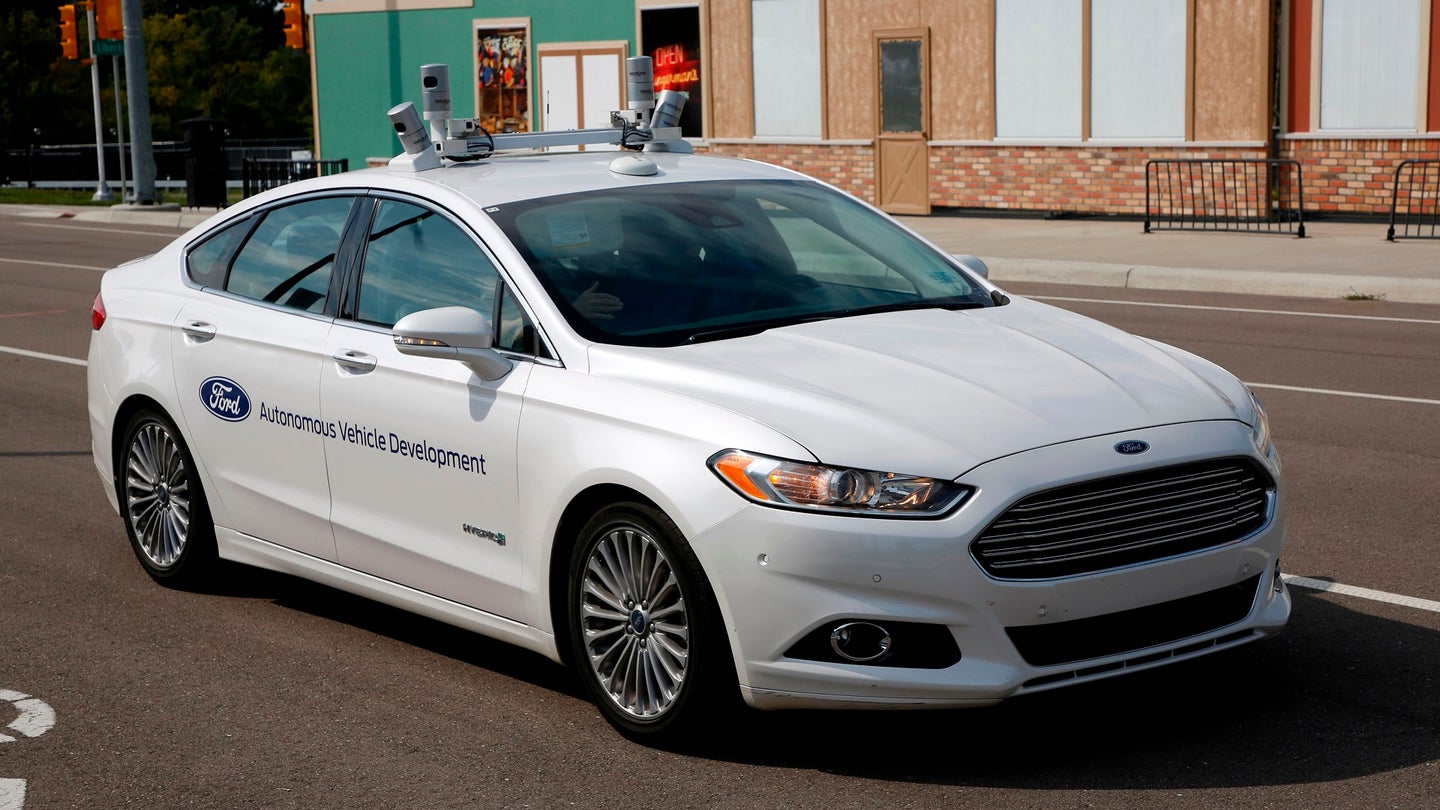Self-Driving Cars May Have a Negative Impact on Fuel Efficiency
All of that autonomous-driving hardware is heavy, and that’s bad for emissions compliance.

A growing list of automakers and tech companies believe self-driving cars are the future, but that belief may conflict with something that isn't up for speculation: stricter emissions standards.
Autonomous driving may actually make it more difficult for automakers to meet efficiency standards, according to a new Bloomberg report. That's because the extra weight of the sensors and computers used in self-driving cars could negatively impact fuel economy. Added bulk could also reduce the ranges of the electric cars many automakers view as necessary to comply with tougher emissions rules.
Over the past few years, automakers have gotten more serious about reducing weight. Lighter materials like aluminum, high-strength steel, and composites have become more commonplace, and it's rare to get a press kit for a new car that doesn't mention weight savings. This is largely to improve fuel economy in anticipation of stricter standards, like the 54.5-mpg Corporate Average Fuel Economy (CAFE) fleet average automakers must achieve in the United States by 2025.
But autonomous driving is undoing a lot of that work. Self-driving cars are covered in cameras and lidar and radar sensors. Their systems also draw a lot of power, more than current 12-volt electrical systems can provide.
Supplying all of that power will have an adverse effect on efficiency, according to Bloomberg, which cites data from supplier Borg-Warner. Adding autonomous-driving capability to regular gasoline vehicles could cause them to miss their 2015 CAFE targets, the company says. Electric cars may not be able to power the suite of electronics without negatively impacting range.
The solution may be hybrids. Ford plans to make its first production self-driving car a hybrid, and Waymo is using the Chrysler Pacifica Hybrid plug-in hybrid as its autonomous test bed. A backup gasoline engine would ensure adequate range, but cars could still use large onboard battery packs to supply electricity, rather than relying on the engine to constantly generate it.
But hybrids may not be as appealing a solution as all-electric cars. Their operating costs will still be higher, and someone will have to develop an automated gasoline pump to refuel them. And while hybrids will reduce carbon emissions, they won't eliminate them completely.
Regardless of the power source, autonomous cars will always be heavier, and thus, less efficient. That might just be the price people have to pay for the convenience of not having to drive.
